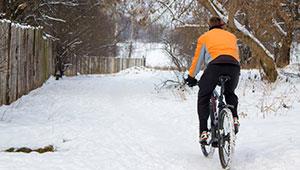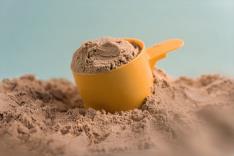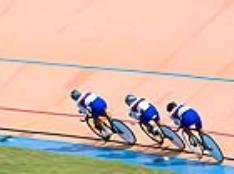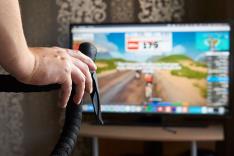
Winter affects cyclists across the country, driving them indoors to ride their trainers or daring them to brave the cold, wet, sandy and sometimes salty roads of winter.
As warmer weather slowly knocks on the door, you should plan for a "spring tune-up" prior to the break of spring. Below is a list of important issues that need attention so you can be sure that your bike will function well and safely this spring.
If you do not like to get your hands dirty, or if you find an issue that you cannot handle, make an appointment with your local bike shop—the average tune-up should run about $50 to $70 and is money well spent. Don't wait until the first spring day to tend to your bike—you could see a big backlog at your local shop or a current minor issue could grow into a larger and more expensive problem.
Transitioning From the Indoor Trainer
Riding an indoor trainer can be a sweat-fest and your bike can suffer from the repeated soaking efforts. While it may not be as messy or dirty as riding outdoors in the winter, you still need to pay special attention to certain aspects of your bike before you hit the road this spring.
- Frame: Wipe down the entire frame with "simple green" cleaner. Inspect all aspects of your bike as you are cleaning, looking for cracks, chips, or other signs of wear and tear.
- Seat tube: Mark your seat height with a piece of tape or sharpie marker, remove the seat post, clean and lube and reposition the seat tube.
- Chain: Use a biodegradable degreaser and old toothbrush to scrub the chain and then apply a good quality chain lube. This can be messy—use latex gloves to help keep your hands clean. If you ride year-round, replace your chain each spring. Make sure that you also clean the derailleur pullies.
- Back tire: Check for uneven wear as extended trainer riding can produce a flat ridge on the tire.
- Skewer: Remove the rear wheel "trainer" skewer and replace with your lighter "road" skewer. Also check your front skewer to make sure it is tightened appropriately.
- Pedals: Remove both pedals, clean the threads (simple green) and then place a small amount of grease on the threads and replace.
- Head set: To check the head set, apply the front brakes while gently tilting the bike forward and back (the rear tire should raise up and down). Listen for clicking, which is a sign of a loose headset.
- Handle bar tape: A sweaty winter of indoor riding can cause wear and tear on your bar tape and new tape is an easy way to spruce up your ride.
- Water bottle cages: Remove the cages, clean the cage and bolt threads, grease and replace.
- 1
- of
- 2








Discuss This Article